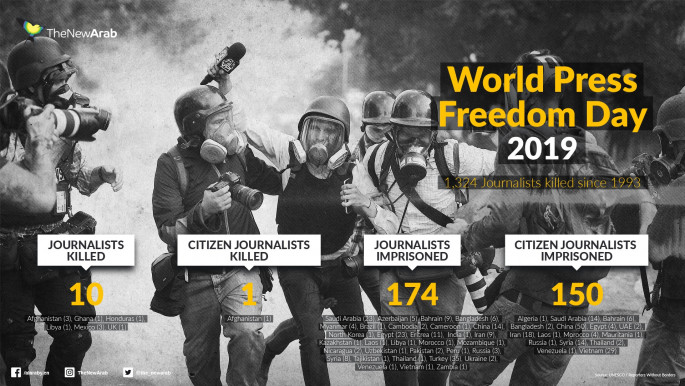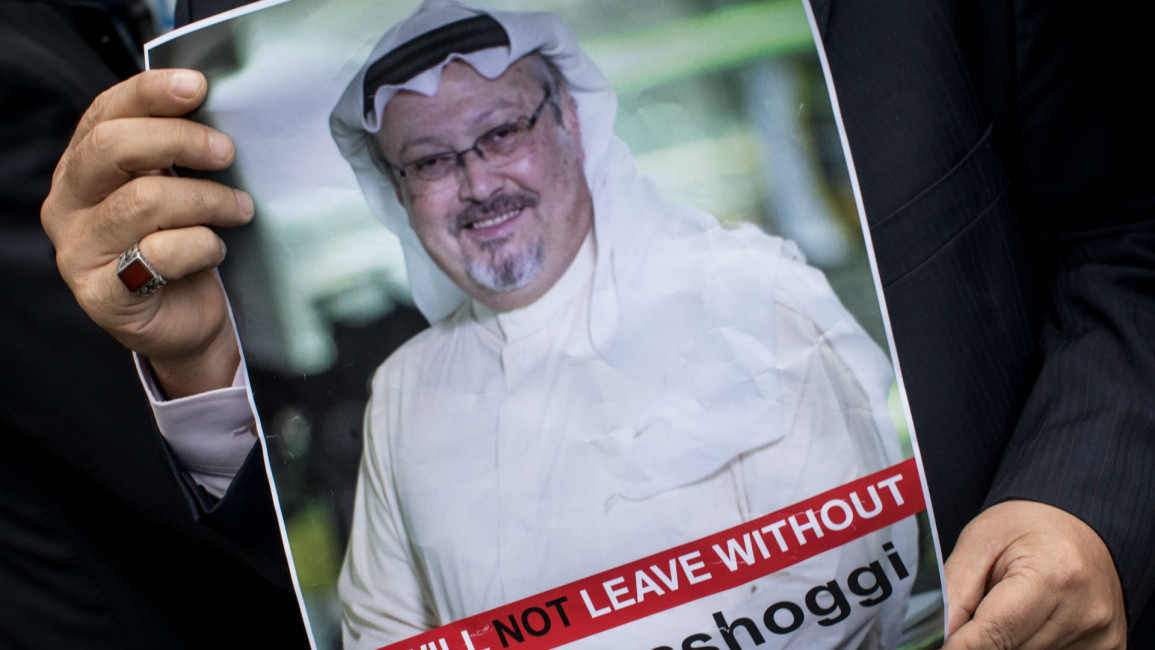
Don't expect Trump to care about these journalists on World Press Freedom Day
Gone at this year's event was a headline comedian. President Trump, notoriously thin-skinned and narcissistically predisposed to lash out with unrivaled personal invective against even the mildest critique, boycotted the dinner for the third consecutive year.
Instead, on April 27, award-winning biographer Ron Chernow keynoted a much more subdued event than is normally the case. Noting the lack of comedians on stage, Chernow observed that "we need them more than ever during this surreal time interlude in American life. As Will Rogers once observed, "People are now taking their comedians seriously, and their politicians as a joke."
In an attempt to appeal to Trump's vainglorious, hubristic, and image obsessed nature, Chernow warned him that "campaigns against the press don't get your face carved into… Mount Rushmore. For when you chip away at the press, you chip away at our democracy. The tribunal of history does not deal leniently with presidents who punish the press."
Good luck trying to persuade a president who systematically labels as "fake news" any stories which shed an unflattering light on his personal and political actions and who dubs the media an "enemy of the people" in an ominously fascistic incantation.
 |
Trump's attacks on the media embolden and provide cover to authoritarian regimes throughout the Middle East allied with Washington |  |
A January 2019 study by the Committee to Protect Journalists found that more than one in ten tweets by Trump "insulted or criticized journalists and outlets, or condemned and denigrated the news media as a whole," noted Stephanie Sugars.
In recognition of Trump's ongoing verbal assaults against the media, Reporters Without Borders dropped the United States three spots to the 48th position in its 2019 World Press Freedom Index (WPFI) out of 180 countries surveyed.
Not only do Trump's assaults against the media in the United States erode a fundamental pillar of democracy domestically; they also embolden and provide cover to authoritarian regimes throughout the Middle East allied with Washington to harass, jail, torture, shoot, and execute journalists.
 |
|
In all fairness, there is no correlation between the level of US support provided to regimes in the Middle East and their repression of freedom of the press. Nearly 40 percent of the bottom decile of the WPFI are Middle Eastern countries representing a mix of regimes toward which the US is closely allied, indifferent to, or hostile.
But today, on World Press Freedom Day, it is worth highlighting the atrocious records toward the media of the three countries most closely allied to and benefiting from Washington's military and political support - Saudi Arabia, Egypt, and Israel.
Saudi Arabia, clocking in at the 172nd spot on the WPFI, "is now one of the world's ten worst countries for journalists," according to Reporters Without Borders.
 |
Egypt, the second largest recipient of US aid, dropped two spots in the WPFI to 163 |  |
The shocking killing and dismemberment of journalist Jamal Khashoggi in the Saudi Arabian consulate in Istanbul in October 2018 was the most prominent example spotlighting the brutality of the country's treatment of the media.
Trump's response was to disregard his intelligence community's conclusion that Crown Prince Mohammed Bin Salman ordered the killing and to reassert his commitment to the US-Saudi alliance, praising Saudi Arabia for "keeping oil prices at reasonable levels".
Read more: World Press Freedom Day: Middle East still most dangerous region for journalists
Khashoggi's gruesome murder abroad overshadowed the plight of journalists within the kingdom. At least 30 journalists were jailed by Saudi Arabia at time of the publication of the WPFI, and activist and journalist Eman al Nafjan, who blogged at Saudi Woman, had recently been released provisionally from prison after 12 months. Al Nafjan was part of a cohort of women activists who were arrested arbitrarily in May 2018.
According to Alqst, an NGO documenting human rights abuses committed by Saudi Arabia, "officials at Dhahban Prison repeatedly tortured the detained activists by electrocution and flogging; some were left unable to walk or stand properly and with uncontrolled shaking of the hands and marks on the body."
 |
Sisi has turned Egypt into 'one of the world's biggest prisons for journalists' - Reporters Without Borders |  |
Egypt, the second largest recipient of US aid, dropped two spots in the WPFI to 163, under the military dictatorship of Abdel Fattah al-Sisi, who overthrew in 2013 the democratically elected government of Mohammed Morsi in a major setback for the Arab Spring.
In his continued crackdown on freedom of speech, Sisi has turned Egypt into "one of the world's biggest prisons for journalists," according to Reporters Without Borders.
Twitter Post
|
In March 2019, Mahmoud Abu Zeid, a celebrated Egyptian photojournalist better known as Shawkat, was finally released from prison after Egyptian authorities meted out a five-year sentence to him in a mass trial during which he was accused of murder and membership in a terrorist organization for his role in covering the brutal crackdown against protesters in Rabaa Square in which Egyptian forces killed hundreds.
Amnesty International condemned Egypt's jailing of Shawkat "simply for doing his job as a photojournalist and documenting the police brutality that took place that day."
The Israeli-occupied Palestinian West Bank and Gaza, ranking 137th in the WPFI, was an exceptionally dangerous place for journalists last year. Israel, the largest recipient of US military aid, has forbade freedom of the press for Palestinians under military occupation since 1967 through Military Order 101.
Israel's repression of Palestinian journalists intensified after Palestinians in the Gaza Strip launched in March 2018 the Great March of Return, an ongoing weekly protest against Israel's blockade and occupation of the territory and for the rights of refugees to return to their homes.
In April 2018, Israeli snipers killed journalists Yasser Murtaja, aged 30, and Ahmed Abu Hussein, aged 24. According to a UN commission of inquiry, both journalists were clearly identifiable as members of the media at the time they were killed, wearing blue vests and helmets marked "PRESS".
The commission found "reasonable grounds to believe that Israeli snipers shot journalists intentionally, despite seeing that they were clearly marked as such," a potential war crime.
Given Trump's vilification of the media domestically, it is unfortunate that journalists in Middle Eastern countries allied to the United States will likely face continued repression with Washington's acquiescence.
Follow him on Twitter: @joshruebner
Opinions expressed in this article remain those of the author and do not necessarily represent those of The New Arab, its editorial board or staff.



